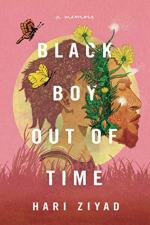
|
| Name: _________________________ | Period: ___________________ |
This test consists of 5 multiple choice questions, 5 short answer questions, and 10 short essay questions.
Multiple Choice Questions
1. In Canto I: Black, "Chapter 2: A Prayer for My Father," what prompts Hari to write a conversation with his inner child?
(a) A suggestion from his therapist.
(b) A dream he has.
(c) An assignment from his school.
(d) The influence of ancestral communication.
2. In Canto II: Queer, "Chapter 6: A Prayer for Limitless," how does Hari feel about the government's narrative of the events of 9/11?
(a) Hari is skeptical of the government's narrative.
(b) Hari believes it's entirely accurate.
(c) Hari fully trusts the government's account.
(d) Hari has no opinion on the matter.
3. What is Hari's view on the relationship between time and capitalism?
(a) He suggests that time and capitalism are unrelated concepts.
(b) He believes capitalism has no influence on people's perception of time.
(c) He asserts that capitalism has made people more relaxed about time.
(d) He argues that capitalism has reinforced strict punctuality and time management.
4. In Canto II: Queer, "Chapter 6: A Prayer for Limitless," how does Hari describe his feelings toward the controversy involving Jeremiah Wright's "God damn America" (92) sermon?
(a) Hari criticizes Jeremiah Wright's views.
(b) Hari fully supports Jeremiah Wright's statement.
(c) Hari believes it's a matter of political ambition.
(d) Hari thinks Barack Obama was right to distance himself from Wright.
5. According to Hari, what value do individuals have in a capitalist system?
(a) Intrinsic human worth.
(b) Collaborative spirit.
(c) Value through competition and ownership.
(d) Personal fulfillment.
Short Answer Questions
1. How does Hari relate the rupture from his childhood to systemic issues?
2. In Canto II: Queer, "Chapter 8: A Prayer for Another World," what is the significance of the phrase "Teach you, teach you, teach you, I’ll teach you the Electric Sliiiiide" (110)?
3. In Canto II: Queer, "Chapter 6: A Prayer for Limitless," what is the significance of the altar that Hari sets up?
4. In Canto II: Queer, "Chapter 6: A Prayer for Limitless," what does Hari hope to achieve by not abandoning what and who he loves?
5. In Canto II: Queer, "Chapter 8: A Prayer for Another World," what does Hari's video of himself as a child performing disappearing tricks symbolize?
Short Essay Questions
1. In Canto II: Queer Chapter 8: "A Prayer for Another World," analyze the role of childhood memories and nostalgia in Hari's reflections. How do memories of family gatherings, imaginary friends, and past experiences impact Hari's understanding of identity and connection?
2. In Canto II: Queer Chapter 7: "Guilt and Gods," how does the chapter's conclusion reflect Hari's growth and readiness to confront his avoidance patterns?
3. In Chapter 1: "Carceral Dissonance," how does Hari's view of inner-child work contrast with his expectations of addressing systemic issues within the therapeutic process?
4. In Canto II: Queer Chapter 7: "Guilt and Gods," how does Hari's recognition of the need for self-acceptance and liberation impact his perspective on religion and spirituality?
5. In Canto II: Queer Chapter 6: "A Prayer for Limitless," what conflicts or contradictions arise in Hari's pursuit of faith?
6. In Canto II: Queer Chapter 7: "Guilt and Gods," how does Hari's relationship with Michael serve as a catalyst for his self-discovery and emotional growth?
7. In Chapter 5: "D*mb Smart," how do Hari's parents' experiences with their religious community highlight issues of race and discrimination?
8. In Canto II: Queer Chapter 8: "A Prayer for Another World," discuss the impact of the criminal justice system on Hari's family and his sense of unity. How do the experiences of incarcerated family members contribute to Hari's feelings of isolation and loss.
9. In Canto II: Queer Chapter 8: "A Prayer for Another World," discuss the theme of disappearing in the chapter. How does Hari's perspective on disappearing change throughout the narrative.
10. In Canto II: Queer Chapter 8: "A Prayer for Another World," how does Hari's belief in the existence of alternative realities influence his understanding of loss and separation?
|
This section contains 1,330 words (approx. 5 pages at 300 words per page) |

|




